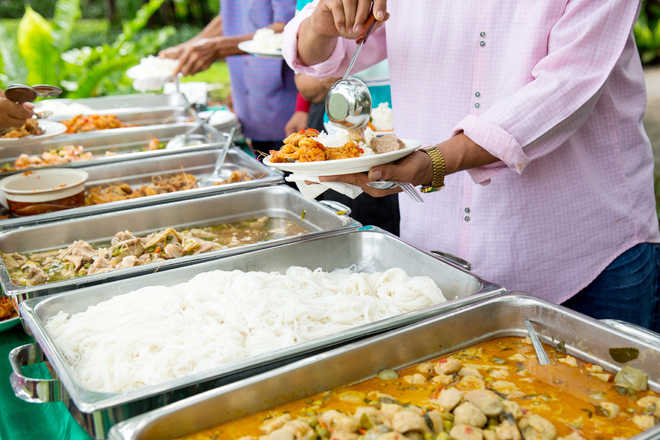
Photos: Istock
Mona
Someone is dying for the food you are throwing away... rather simple and literal, yet United Nations’ Food and Agriculture Organisation pegs the loss at $1 trillion – globally, one-third of all food produced is thrown in the bin every year. Britain has appointed its first food waste chief last week; here is a quick check on how Tricity deals with the issue of wastage.
Proper measures
Adopting a pro-active approach, Taj, Chandigarh packs food surplus from the buffet for the staff. “Even at banquet functions there is a strict process to check wastage,” says Executive Chef Ranvijay Singh.
“Wish people were as conscientious,” says Dhanambir Chaudhary. Fourteen years handling Red Tag Caterers, his heart goes out for patilas full of sumptuous delicacies that could feed so many.
One of the core values of The Lalit Suri Hospitality Group is to 'minimise wastage'. “Since 2017, we have tied-up with The Robin Hood Army, an NGO, which works to get surplus food from restaurants and the community to serve the less fortunate people,” says Imit Arora, General Manager, The Lalit Chandigarh.
Big waste
While efforts have been initiated in different states, the response been rather tepid. Mithelesh Khandelwal, who runs supermarkets in Tricty, recalls how few years back Khandelwal Samaj tried sticking to 11 dishes for a feast at Jaipur. “The idea was not to waste food; nobody would eat at functions that served more than 11 dishes. It met resistance and was soon lost.”
“It’s the typical north-Indian ‘show off’ culture that is at the root of this wastage,” insists Chaudhary. He lately had a client who insisted on serving fancy seafood at a wedding. Despite being told that there are hardly any takers for sea food in the region, he was adamant. “I am paying, you follow,” was the response he got.
Sincere efforts
Last year, Surinder Rawat, founder, Nav Chetana, started with the drive to collect surplus food and distribute it to the needy. They carry food in plastic bags to be delivered to nearest place like PGI, Sector 16 hospital or wherever they could find migrant labour. Efforts are on by eateries and NGOs, but no workable model has been formed so far.
“Hotels demand a collection time in between 11-12 at night. It’s difficult to get volunteers at that hour. Then there is the issue of storage till the next morning. We have plans to tie up with Uber, Ola or auto drivers to help us transport stuff to the nearest place, where it could be put to good use,” adds Rawat.
Make a Business model
“A decade-and-a-half in the industry, from Boston to Bengaluru, I have seen food binned everywhere, says chef-consultant Ashish Manchanda. Founder of bespoke hospitality consulting, Advisure, he sees hope though, “Millennials are concerned about their conduct. While NGOs have tried to do their bit, unless someone makes a business model out of it and generate profit, little progress can be made on the ground.”


























